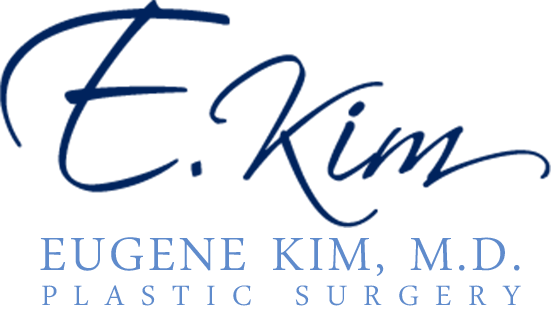 Breast augmentation is the most popular procedure for women looking to reshape or enlarge their breasts. Since this procedure involves the placement of artificial implants into the chest, there are some possible, but rare, complications that may arise. Capsular contracture is one of the more severe risks of breast augmentation and can occur no matter how skilled your surgeon may be. Board certified plastic surgeon Dr. Eugene Kim provides removal and replacement of breast implants to patients in Beverly Hills, Los Angeles, Santa Monica, West Hollywood, CA, and surrounding communities.
Breast augmentation is the most popular procedure for women looking to reshape or enlarge their breasts. Since this procedure involves the placement of artificial implants into the chest, there are some possible, but rare, complications that may arise. Capsular contracture is one of the more severe risks of breast augmentation and can occur no matter how skilled your surgeon may be. Board certified plastic surgeon Dr. Eugene Kim provides removal and replacement of breast implants to patients in Beverly Hills, Los Angeles, Santa Monica, West Hollywood, CA, and surrounding communities.
Signs of Capsular Contracture
Silicone or saline breast implants pose equal risk of capsular contracture, however it is more common with silicone implants. When capsular contracture occurs, the body forms a capsule of scar tissue around the breast implant in response to having a foreign object in the body. While scar tissue is usually soft and flexible, it can sometimes harden and tighten around the implant, forming a capsular contracture. This may occur at any point following surgery, and it may take several months to be noticed. Signs that your implant may be encapsulated include:
- Breasts appearing higher than they initially were
- Hardening and tightening
- Pain
- Deformation of shape
Types of Capsular Contracture
You will need a physical exam to accurately determine the type of capsular contracture you may have. Contracture is categorized into four grades based on the Baker Classification of Capsular Contracture.
Grade I: Capsulation is indetectable, the breasts appear and feel natural and no treatment is required.
Grade II: The breasts are slightly firm but still appear natural. Treatment may include massage and prescription medications.
Grade III: The breasts appear deformed in shape and feel firm. Surgical intervention will be required to treat the capsulation.
Grade IV: The breasts appear severely deformed, feel firm, and are causing pain. Surgical intervention is required to treat the capsulation.
Your Surgeon Matters
You can increase your chances of safe, reliable breast augmentation results by choosing a board certified plastic surgeon to perform your procedure. If you are concerned about a possible capsulation, contact our office today to schedule a consultation. Board certified plastic surgeon Dr. Eugene Kim provides removal and replacement of breast implants to patients in Beverly Hills, Los Angeles, Santa Monica, West Hollywood, CA, and surrounding communities.
Contact the Office of Beverly Hills Plastic Surgeon Dr. Eugene Kim
Click here see more plastic surgery procedures and treatments performed by Board Certified Plastic Surgeon, Dr. Eugene Kim on patients in Beverly Hills, Los Angeles, West Hollywood, Santa Monica, CA and surrounding areas or call 310-271-6996 to schedule a consultation.
